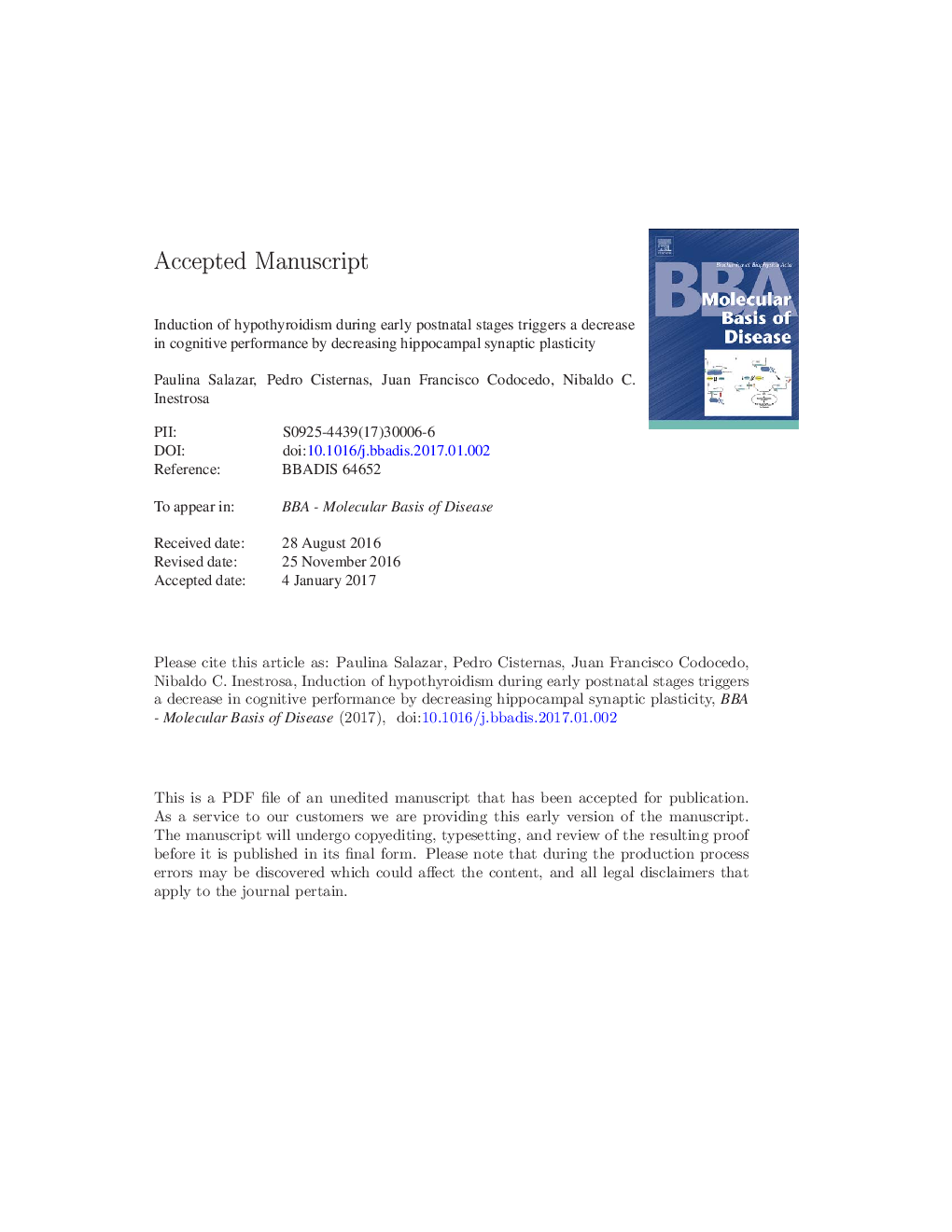| Article ID | Journal | Published Year | Pages | File Type |
|---|---|---|---|---|
| 5500967 | Biochimica et Biophysica Acta (BBA) - Molecular Basis of Disease | 2017 | 52 Pages |
Abstract
Thyroid hormones are vital in the control of multiple body functions, including the correct performance of the brain. Multiple diseases are associated with thyroid gland functioning, including hypothyroidism. To date, little is known regarding the effects of the establishment of this condition at a young age on brain function. Here, we evaluated the effect of hypothyroidism in an early postnatal stage in cognitive abilities with focus on the hippocampus. In our model, hypothyroidism was induced in young rats at 21 days of age using 0.05% 6-propyl-2-thiouracil (PTU) for 4 weeks reaching significantly lower levels of fT4 (control: 1.337 ng/dL ± 0.115, PTU: 0.050 ng/dL ± 0.001). Following the induction of hypothyroidism, several cognitive tasks were assessed to investigate the effects of hypothyroidism on cognition performance. We determined that hypothyroidism triggers a significant dysfunction in learning and memory processes observed in the Morris Water Maze were the latency times were higher in PTU rats (controls: 37 s; PTU: 57 s). The cognitive impairment was correlated with a reduction in hippocampal plasticity with respect to both long-term potentiation (LTP) (control: 1.45, PTU: 1.00) and depression (LTD) (control: 0.71, PTU: 1.01). Furthermore, a decrease in the rate of glucose utilization (control: 223 nmol â mg of protein, PTU:148 nmol â mg of protein) was observed, along with an increase in oxidative stress and a decrease in MAP2 marker in the hippocampus. Our findings suggest that the induction of hypothyroidism in a young rat model alters numerous functions at the level of the hippocampus.
Related Topics
Life Sciences
Biochemistry, Genetics and Molecular Biology
Ageing
Authors
Paulina Salazar, Pedro Cisternas, Juan Francisco Codocedo, Nibaldo C. Inestrosa,
